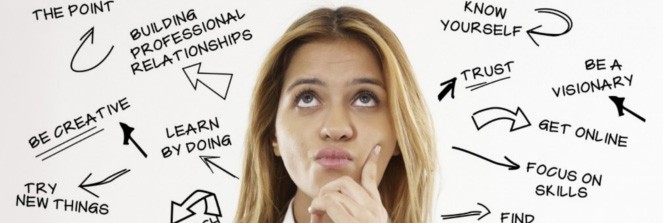
 Many account managers in creative agencies tell me they are frustrated because they are not being promoted fast enough to account director level. They believe they have the right skills in account management to be promoted on a higher level.
Many account managers in creative agencies tell me they are frustrated because they are not being promoted fast enough to account director level. They believe they have the right skills in account management to be promoted on a higher level.
Some are concerned that they’re not keeping up with their peers in the industry.
3 Reasons Why You Are Not Promoted as Account Director
They say that people with the same length of experience seem to be working at more exciting agencies on more interesting projects offering greater career opportunities with line management responsibility.
If this sounds like you i.e. you’re not being recognized as the star performer you think you are and being earmarked for promotion, then it might be less about the agency you’re at and more about your performance.
Recognizing the Reasons Why You are Not Promoted
Take a look at the following 3 potential reasons you might be being passed over for promotion:
1. You’re not Focusing Enough on Business Outcomes
Ask yourself the question ‘what is your client buying from you?’
If you’re in a creative agency you might say any one of the following: branding, logos, ideas, ads, campaigns and websites.
This is true to an extent but it’s not the real reason they buy from you.
What your client is actually buying are business outcomes.
Examples of business outcomes are; an uplift in sales, an increase in market share, greater customer engagement, more brand awareness, larger profit margins, quicker market penetration etc.
You get the picture.
Clients don’t use an agency because they create fantastic ad campaigns or websites or [fill in the creative agency output blank], they want their business to be successful.
So if you begin to focus your conversations with the client on business outcomes rather than transactional processes, you automatically start to talk the client’s language and position yourself as more senior.
The end result of everything the agency does aims to improve the client’s business results in some way.
Therefore, you as an account manager should ensure that you focus on how what you’re doing is going to positively impact the client’s business.
Action steps:
a) Make sure you know what the client’s desired business outcome is for the project you’re currently working on.
b) Has your client shared their business objectives and plans with you for the year? Are you ensuring that all promotional activities can be tracked against these objectives?
c) Next time you see your client ask them ‘how’s business?’. Start to talk to them about what results they’re looking for and what goals they have. How is their own performance being measured in their company or if it’s their own company, what goals do they have?
d) Ensure that you present any ideas in the context of the business outcome it achieves
2. You’re Not Bing Pro-active enough
One of the most common complaints clients have about their agencies is their lack of proactivity.
After relationships go bad, disgruntled clients say things like “the agency didn’t give us anything we didn’t ask for”.
The key to ensuring the agency is seen as proactive is to listen carefully when the client is talking about their business challenges and try to help the client with these challenges before they provide a concrete brief.
I’m not talking about spending hours on ‘free consulting’.
It could be that their key competitor is launching an aggressive marketing campaign and they need to keep ahead of them in terms of their promotional activity.
In this case, how could you help them keep ahead and by doing so demonstrate that you are proactive?
Well for example you could ensure that you are the one that is keeping an eye on the market and their competitor’s activity and be the first person to bring your client the latest news?
It’s simple to sign up for Google Alerts using the competitor’s brand name and read the latest news from the web. Then send appropriate news snippets with thoughts and ideas for how the client could respond.
This keeps you informed of what’s going on in the client’s market too and helps to position you as more knowledgeable, interested and proactive.
Clients expect you to walk in their shoes and understand their fast changing world and adapt to new circumstances.
This means that as things change, they expect you to pay attention to the changes, adapt and deliver fresh insights, share new thoughts and ideas and understand their changing environment.
Don’t wait for them to give you information. Seek it out yourself first as well as proactively ask them for it.
Every year your client is setting marketing goals and building marketing plans. They should be sharing those plans with you so that you understand their objectives.
If they’re not, ask for them.
By doing so you put yourself in the ‘account director’ rather than account manager league.
Action steps:
a) Sign up for daily Google Alerts using the competitor’s brand name as well as your client’s brand name. When you receive alerts, review them for relevance, group them together in themes and write a couple of summary lines and send any interesting ones to the client on a regular basis. Include any actions the client could take.
b) Summarise the news snippets and develop a short competitor analysis presentation to present when you next see the client. Use examples from other industries to highlight examples and points.
3. You’re Not Building Strong Relationships with your Client and Colleagues
Your value as the manager of the client’s account is often directly correlated to the strength of the relationship you have with them.
Similarly, if you have a strong relationship with your colleagues and peers, it goes without saying that they will want to support you and see you succeed. So getting better with your time management is an important aspect to your goal on promotion.
Relationships are built on trust.
If you can build trust with the client;
– through delivering consistent great work, becoming knowledgeable about the client’s business and industry, providing excellent value, focusing on exceeding the client’s expectations and making the relationship an enjoyable experience too…. you’ll become irreplaceable.
And if you can build trust internally;
– by consistently communicating with your peers regularly and in a respectful manner, knowing your stuff, providing constructive comments and suggestions, being active and positive and contributing to the team effort….. you’ll also begin to be valued and appreciated and considered for a more responsible position in the agency
Many of these trust building actions are ‘hard’ skills; building your knowledge and expertise in the client’s business and industry, planning in advance for projects so that the agency is very organised, coming up with relevant ideas, being organised for client meetings etc.
But there are also ‘softer’ skills that so often come into play in relationships such as; building rapport and empathy with clients and colleagues, being sensitive to others, having great social skills, being a good listener, being self aware, controlling emotions etc.
These skills are often referred to as being emotionally intelligent. They are extremely important but unfortunately often overlooked.
There are books such as How to Win Friends and Influence People ” or Just Listen: Discover the Secret to Getting Through to Absolutely Anyone
” that can help with building your softer skills.
Ultimately the old adage ‘All things being equal, people do business they know, like and trust” remains as true today as it always has.
So to build a strong relationship with the client and your colleagues you don’t just have to be good at your job, you have to be liked and trusted.
If you’re not sure how you’re doing, ask them.
You’ll gain respect and admiration if you are brave enough to sit down with your client or a colleague and ask them for honest feedback about your performance.
Remember this is about your role performance and not you as a person.
Questions such as “what’s going well with our relationship?”, “what’s not going so well?” and “Is there anything you think I could work on to help our relationship move forward?”.
The key then is to listen carefully to the answers without interrupting and allow them to let you know.
Encourage them with “what else?”, “anything else?” until you think you’ve really exhausted everything.
Then (for clients) capture bullet points from the conversation in the form of a contact report with some action steps next to each point for the agency to follow.
If you’ve asked a colleague for feedback, you might want to make some notes for yourself so that you remember what they’ve suggested.
Action steps:
a) Ask your client for feedback on the agency’s performance
b) Ask your client for feedback on how they think you can help improve the client-agency relationship.
So do you have any experience of being promoted from Account Manager to Account Director? Why do you think you were promoted? I’d love to hear your comments.
